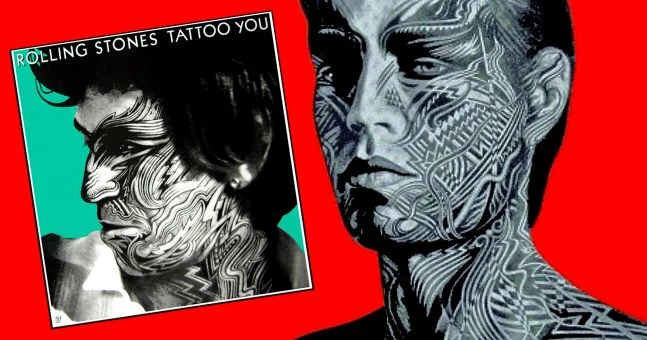
Tattoo You’s Sublime B-Sides: Where the Rolling Stones Found Their Soul
Released in 1981, Tattoo You marked a moment when the Rolling Stones, already rock royalty, had to prove they could still innovate. Following the energy of Some Girls (1978) and the slightly less impactful Emotional Rescue (1980), the Stones crafted Tattoo You with a two-sided appeal. While Side A was filled with radio-friendly hits like “Start Me Up,” it’s Side B that holds the album’s deeper artistry and emotional resonance.
What makes the B-sides of Tattoo You so special? It’s here that we find the band’s raw and introspective creativity, with a lineup of songs that showcase Mick Jagger’s sultry falsetto and Keith Richards’ deeper, groove-heavy guitar work. On Side B, we see the Stones slowing down, emphasizing mood and atmosphere in ways they hadn’t done in a while.
The Standout Tracks: Why Side B Shines
The crown jewel of Side B is undoubtedly “Waiting on a Friend.” The track exudes a serene, reflective vibe, featuring jazz legend Sonny Rollins on saxophone, blending genres effortlessly. It’s an uncharacteristic song for the Stones—mellow, vulnerable, and introspective. This softer, more nuanced side of the band contrasts sharply with the high-octane tracks on Side A like “Start Me Up.”
Other B-side gems include “Tops” and “Heaven,” both of which explore more melodic, almost hypnotic arrangements that strip away the bombast. “Tops” has a dreamlike quality, with Jagger’s voice floating above Richards’ guitar riffs, while “Heaven” offers a spacey, ethereal sound that feels lightyears away from the stadium anthems.
The Role of ‘Slave’—A Party Anthem That Transcends
“Slave,” though technically from Side A, feels like it belongs on the B-side. Its extended jam structure and funk-influenced rhythm make it a perfect bridge between the album’s two sides. This track, with its infectious groove and minimal lyrics, was a hit among my high school cohort, setting the tone for countless weekend parties. It’s an underrated party anthem, rooted in the Stones’ ability to blend rock with soul and funk.
Tattoo You’s Legacy: The Last ‘Great’ Stones Album?
Many critics argue that Tattoo You was the Rolling Stones’ last great album, and much of this praise centers on the cohesion and maturity found on Side B. While Side A gave fans the hits, Side B showcased the Stones’ ability to craft deeply emotional and textured music.
The seamless flow of songs like “Worried About You” and “No Use in Crying” reveals a band that was not only innovating but also reflecting on its legacy. By the time Tattoo You was released, the Stones were already legends, but Side B reminds us why they still mattered at this stage in their career—offering something fresh, soulful, and introspective.
The Hidden Influence of Charlie Sexton and Chuck Prophet
Artists like Charlie Sexton and Chuck Prophet might seem far removed from the Stones, but their influence and connection can be traced through shared musical DNA. Sexton, a gifted guitarist and collaborator with the likes of Bob Dylan and Lucinda Williams, has carried forward the torch of rock, blues, and country. He’s also shared the stage with Chuck Prophet, a master of roots rock. Both musicians embody the same spirit of artistic honesty and musicianship that makes Side B of Tattoo You so enduring.
Tattoo You, an album released on August 24, 1981, finds Charlie Watts in the box, Richards riffing kick-ass side 1 with the contrasting sultry, sexy falsetto Mick vocal, and the subtle songwriting pop classics on side 2. Tattoo You followed the inestimably great, Some Girls release on June 9, 1978, with the slight Emotional Rescue sandwiched in between. We include the first track of Some Girls and the track Slave. Notice the common lyrical references between these two tracks?
Tattoo You was a seminal release for my High School crew. I recall the weekend party commencing with the track Slave for our cohort. Many critics consider Tattoo You the last great Rolling Stones album, and I would suggest Album side 2 with the Slave track from side 1 is an excellent Stones release. Start me up is a muscle flex for Mick’s aerobic vocal exercises and Keith’s best Chuck Berry riffs. Included below are the best (IMHO) from Tattoo You. Side 2 is strongly featured with the excellent track, “Slave” (kick up the party vibe track), the number one D.C. Track below.
You will notice the Charlie Sexton (guitarist, vocalist) factor creeping into the onstage club shows with Chuck Prophet. This is no accident for musicians like Chuck Prophet to include guest musicians of Charlie Sexton’s star magnitude. Charlie Sexton is the connective tissue between many artists we admire, including Bob Dylan, Lucinda Williams, the Rolling Stones, and so many more. Charlie Sexton is just that influential and admired by most sane humans for the virtues of Adonis’s good looks, natural comfort within his body frame, humility, guitar, and vocal skills. See Austin, Texas; see Charlie Sexton.
Slave (Remastered)
Provided to YouTube by Universal Music Group Slave (Remastered) · The Rolling Stones Tattoo You ℗ 1994 Promotone B.V., Under Exclusive Licence to Universal Music International B.V Released on: 2009-01-01 Associated Performer, Vocalist, Vocals, Harmonica: Mick Jagger Associated Performer, Guitar, Vocals: Keith Richards Associated Performer, Bass Guitar, Bass (vocal): Bill Wyman Associated Performer, Drums: Charlie Watts Producer: The Glimmer Twins Associated Performer, Guitar, Vocals: Ron Wood Studio Personnel, Engineer: Andy Johns Studio Personnel, Engineer: Glyn Johns Studio Personnel, Engineer: Joe Zaganno Associated Performer, Guitar: Mick Taylor Associated Performer, Saxophone: Bobby Keys Associated Performer, Trumpet: Jim Price Associated Performer, Piano: Nicky Hopkins Producer: Jimmy Miller Associated Performer, Piano: Ian Stewart Composer Lyricist: Mick Jagger Composer Lyricist: Keith Richards
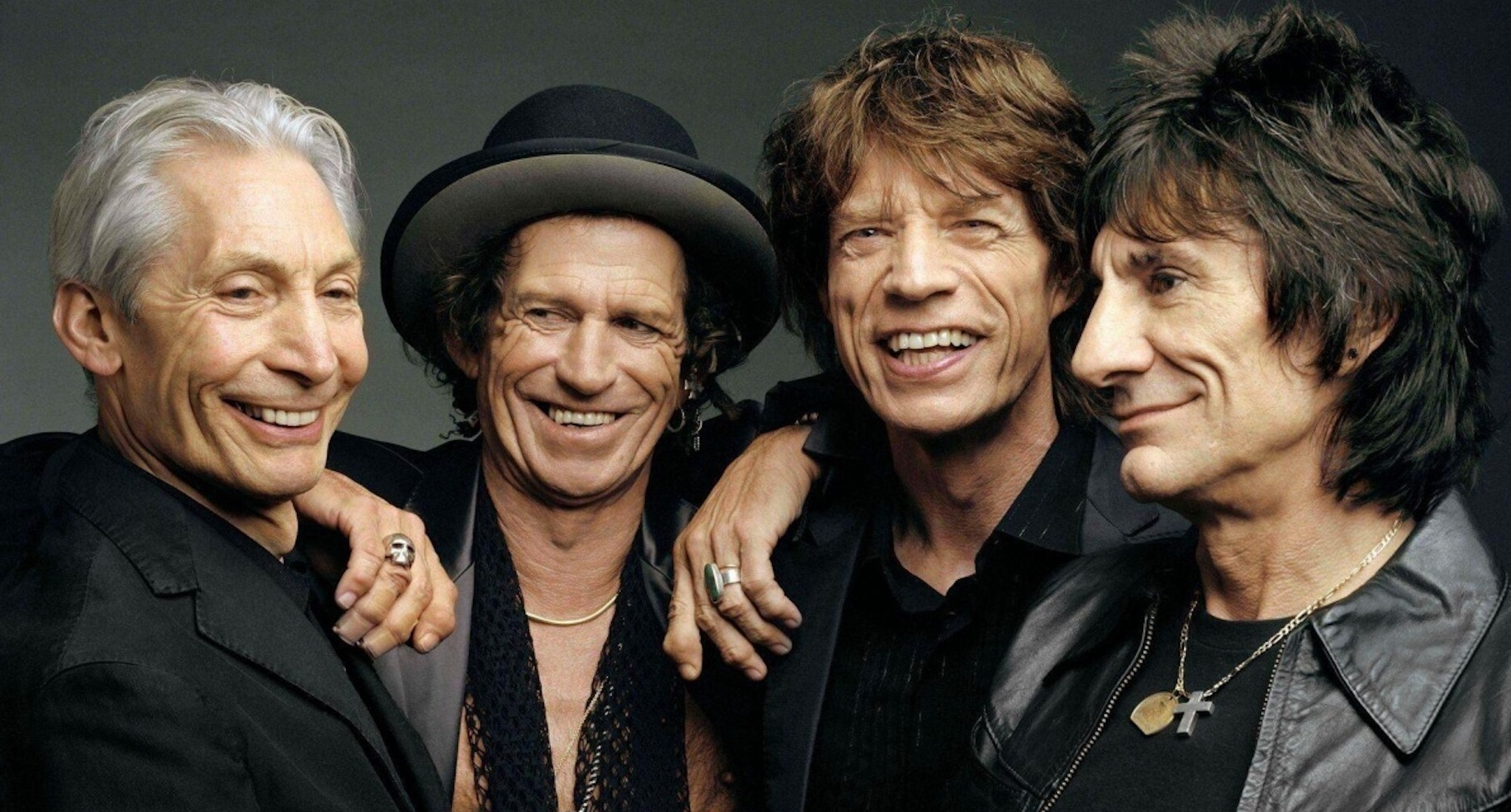
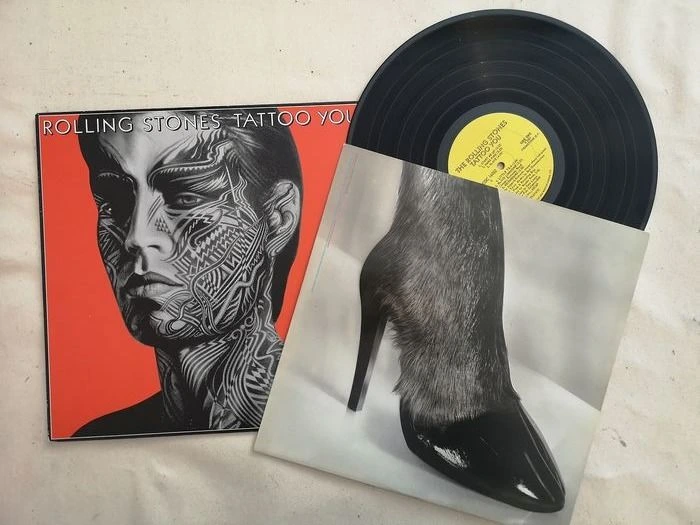
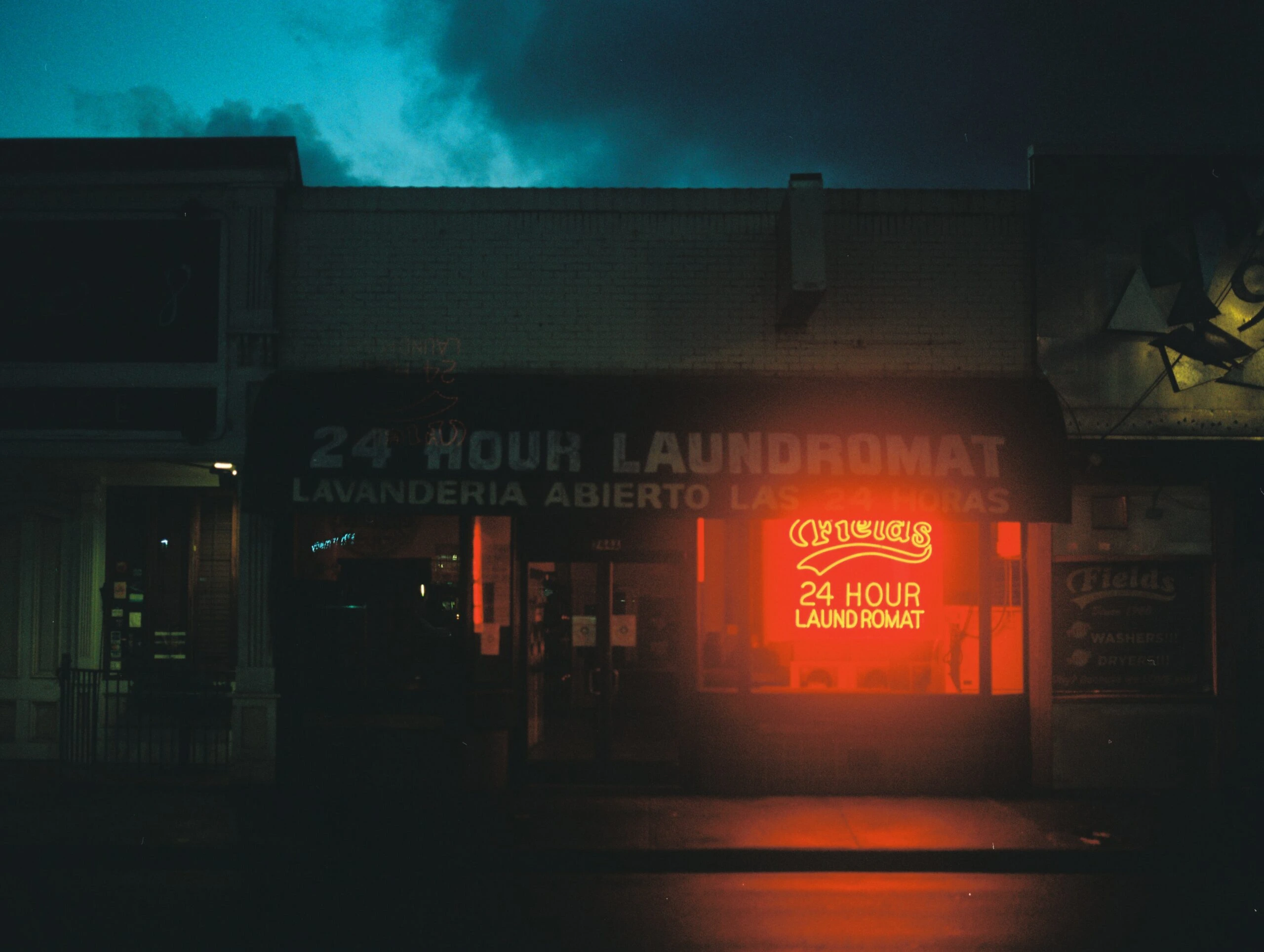
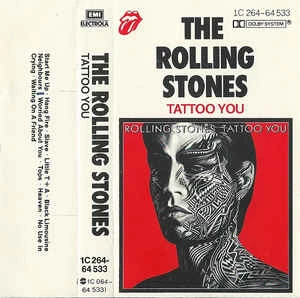
Worried About You (Remastered)
Provided to YouTube by Universal Music Group Worried About You (Remastered) · The Rolling Stones Tattoo You ℗ 2009 Promotone B.V., Under Exclusive License to Universal Music International B.V. Released on: 2009-01-01 Associated Performer, Vocalist, Vocals: Mick Jagger Associated Performer, Guitar, Vocals: Keith Richards Associated Performer, Bass Guitar: Bill Wyman Associated Performer, Drums: Charlie Watts Producer: The Glimmer Twins Associated Performer, Guitar: Ron Wood Associated Performer, Guitar: Mick Taylor Studio Personnel, Remixer: Bob Clearmountain Studio Personnel, Recording Engineer: Chris Kimsey Composer Lyricist: Mick Jagger Composer Lyricist: Keith Richards

Tops (Remastered)

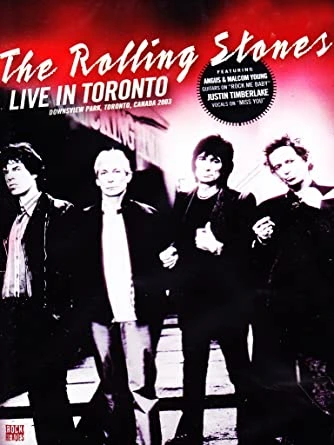
Heaven (Remastered)
Smell of you baby, my senses, my senses be praised
Kissing and running, kissing and running away
Senses be praised
Senses be praised
Saving grace
Nothing will harm you
Nothing will stand in your way
Nothing will stop you
And nothing will stand in your way
No one will stand in your way
No one will bar you
Nothing will stand in your way
Nothing
There’s nothing
Mick Taylor is an excellent musician, a gifted guitarist, and one of the best studio musicians to play with the Rolling Stones. The guitar solo that closes out, Can’t you hear me knocking is among the best in Rock Roll.
The Rolling Stones “Can’t You Hear Me Knocking” (1971)
“Can’t You Hear Me Knocking” is a song by English rock band the Rolling Stones from their 1971 album Sticky Fingers? The song is over seven minutes long and begins with a Keith Richards open-G tuned guitar intro. At two minutes and forty-three seconds, an instrumental break begins, with Rocky Dijon on congas; tenor saxophonist Bobby Keys performs an extended saxophone solo over the guitar work of Richards and Mick Taylor, punctuated by the organ work of Billy Preston. At 4:40 Taylor takes over from Richards and carries the song to its finish with a lengthy guitar solo.
The Rolling Stones, Mick Taylor years were (IMHO) the band’s most creative period. Here is a great example of the early period with Mick’s excellent blues harp obbligato and vocals, Keith’s sharp rhythm playing in sync with Charlie’s tight drumming, Bill Wyman’s proletariat bass thumping, and of course Mick Taylor’s journeyman guitar solos. Mick Taylor played with the Stones for 5 years on some of their best recordings and many years later joined the band on tour along with other great session musicians.
Mick Taylor talks The Rolling Stones years
Ask Keith Richards: What’s your favorite memory of playing with Mick Taylor?

No Use In Crying (Remastered)
Provided to YouTube by Universal Music Group No Use In Crying (Remastered) · The Rolling Stones Tattoo You ℗ 1994 Promotone B.V., Under Exclusive License to Universal Music International B.V. Released on: 2009-01-01 Producer: The Glimmer Twins Studio Personnel, Remixer: Bob Clearmountain Studio Personnel, Recording Engineer: Chris Kimsey Composer Lyricist: Mick Jagger Composer Lyricist: Keith Richards Composer Lyricist: Ronnie Wood


Waiting On A Friend (Remastered 2009)
Provided to YouTube by Universal Music Group Waiting On A Friend (Remastered 2009) · The Rolling Stones Tattoo You ℗ 2009 Promotone B.V., under exclusive license to Universal International Music B.V. Released on: 2009-01-01 Associated Performer, Vocalist: Mick Jagger Associated Performer, Guitar, Vocals: Keith Richards Associated Performer, Guitar: Mick Taylor Associated Performer, Bass Guitar: Bill Wyman Associated Performer, Drums: Charlie Watts Producer: The Glimmer Twins Associated Performer, Piano: Billy Preston Composer Lyricist: Mick Jagger Composer Lyricist: Keith Richards

Charlie Watts, R.I.P. (2 June 1941 – 24 August 2021)
Charles Robert Watts was born June 2, 1941, in London, and grew up in the northwest neighborhood of Wembley, where he would later perform sold-out stadium concerts. By the time he was 16, Mr. Watts was drumming in jazz groups and frequented London clubs, according to a biography provided by his spokesman.
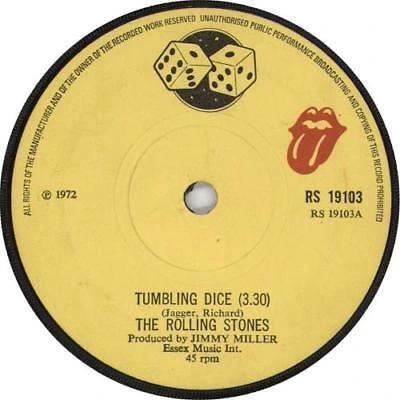
Tumbling Dice ~ The Rolling Stones
Song
Artist
Writers
Licensed to YouTube by
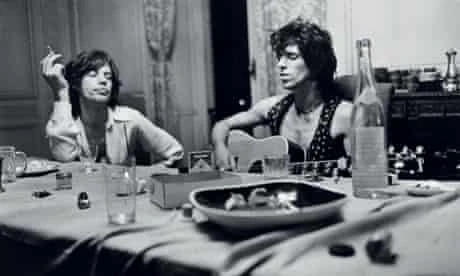
Charlie Sexton Interview
Jan 15, 2016
We met up with the legendary Charlie Sexton at 4Sound in Malmö and talked about his life and career as a musician and what it’s like working with the icon Bob Dylan.
YETI Drifting Podcast: Charlie Sexton
Charlie Sexton with Chuck Prophet and the Mission Express “Miss You”



Do it, do it, do it, do it, do it
Don’t wanna be your slave
Don’t wanna be your slave
Don’t wanna be your slave
Don’t wanna be your slave
Hey, why don’t you go down to the supermarket?
Get something to eat, steal something off the shelves
Pass by the liquor store, be back about quarter to twelve
Don’t wanna be your slave
Don’t wanna be your slave
Baby go, baby go, baby go
Do it yeah baby, yeah baby
Don’t wanna be your slave
Don’t wanna be your slave
Baby do it
No, no, no
Baby
Do it, do it, do it, do it, do it